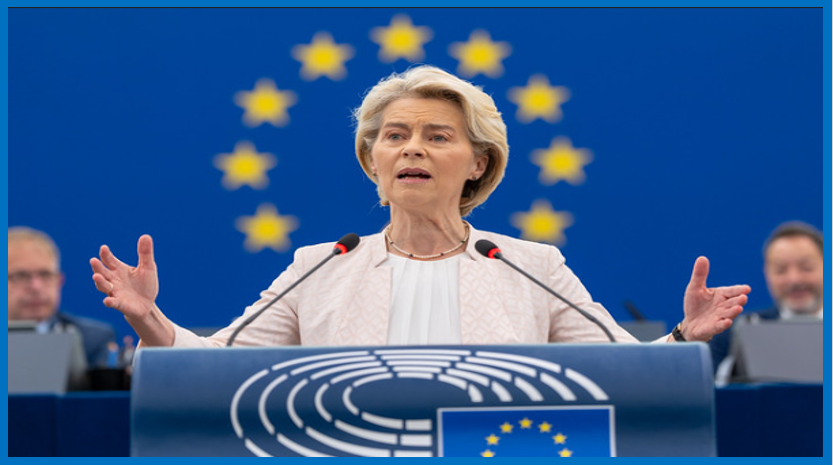Brussels — June 15, 2025
European Commission President Ursula von der Leyen has urged all parties in the Middle East to exercise maximum restraint and work toward de-escalation amid rising regional tensions. The call came during a phone conversation with Israeli President Isaac Herzog on Saturday, as conflict between Israel and Iran continues to intensify.
In a post on social media platform X, von der Leyen reaffirmed Israel’s right to self-defense and the protection of its citizens, while emphasizing the importance of maintaining regional stability.
“Spoke with President Isaac Herzog concerning the escalating situation in the Middle East. I reiterated Israel’s right to defend itself and protect its people. At the same time, preserving regional stability is vital. I urge all parties to act with maximum restraint and work to de-escalate the situation,” von der Leyen wrote.
The European Commission chief also underlined the importance of diplomatic efforts to prevent further escalation and limit the humanitarian and security fallout across the broader region.
Crisis Deepens Between Israel and Iran
Tensions in the Middle East have surged following reports that the Israel Defense Forces (IDF) launched airstrikes targeting Iran’s nuclear infrastructure and other military assets. The strikes reportedly hit dozens of locations connected to Iran’s nuclear development programs, escalating fears of a wider regional war.
In response, Iran retaliated by launching a large-scale missile attack on multiple targets inside Israel, including military and strategic sites. The ongoing exchanges mark one of the most serious military escalations between the two countries in recent years.
Wider Geopolitical Implications
The latest Middle East flare-up has raised concerns among analysts and international observers about its potential ripple effects on other global conflict zones.
A recent report by the Institute for the Study of War (ISW) warned that the crisis could divert Western attention and resources away from ongoing support to Ukraine, potentially benefiting Russia as it continues its war of aggression.
Von der Leyen’s remarks reflect growing urgency within the EU to prevent broader destabilization that could disrupt energy markets, trigger migration waves, and shift geopolitical priorities across Europe and beyond.
Related Reading:
- Israel-Iran conflict: What it means for Russia’s war in Ukraine
- Middle East escalation could boost Russia’s war efforts in Ukraine – ISW
For official statements and updates, follow @vonderleyen on X.



